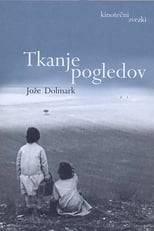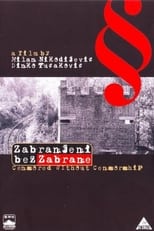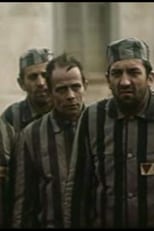

Slobodan Šijan
Born: November 16, 1946
in Belgrade, Serbia
in Belgrade, Serbia
From Wikipedia, the free encyclopedia
Slobodan Šijan (born November 16, 1946, Belgrade, Yugoslavia) is a Serbian film director. After graduating film direction and directing a handful of TV movies in the late 1970s, he caught a big break with his first full-length feature Ko to tamo peva in 1980. The enormous success of that film written by Dušan Kovačević led to the duo collaborating on another project - 1982's Maratonci trče počasni krug, which also achieved considerable critical and commercial success. Over the coming years Šijan directed two more notable films - Kako sam sistematski uništen od idiota and Davitelj protiv davitelja. As of 2001, he is teaching at Loyola Marymount University film school. His favorite movie is Howard Hawks' Rio Bravo (1959).
Description above from the Wikipedia article Slobodan Šijan, licensed under CC-BY-SA, full list of contributors on Wikipedia.
Slobodan Šijan (born November 16, 1946, Belgrade, Yugoslavia) is a Serbian film director. After graduating film direction and directing a handful of TV movies in the late 1970s, he caught a big break with his first full-length feature Ko to tamo peva in 1980. The enormous success of that film written by Dušan Kovačević led to the duo collaborating on another project - 1982's Maratonci trče počasni krug, which also achieved considerable critical and commercial success. Over the coming years Šijan directed two more notable films - Kako sam sistematski uništen od idiota and Davitelj protiv davitelja. As of 2001, he is teaching at Loyola Marymount University film school. His favorite movie is Howard Hawks' Rio Bravo (1959).
Description above from the Wikipedia article Slobodan Šijan, licensed under CC-BY-SA, full list of contributors on Wikipedia.
Movies for Slobodan Šijan...

Title: Kreka: Dreamcatcher
Character: Self
Released: May 16, 2021
Type: Movie
The career of the famous production designer Miljen Kljaković – Kreka and reveals all the beauty and importance of film scenography.


Title: A Man from the Border
Character: Himself
Released: November 12, 2017
Type: Movie
This feature-length documentary about Professor Jože Dolmark shows the protagonist as a man of many insights, interests and talents; as an art historian, an authority on literature and the history of cinema and photography, a film critic, cineaste, screenwriter, actor, and above all an extraordinary teacher and professor, and in a new light: intimately, through anecdotes and his world view, as befits a man of his greatness. Jože Dolmark is a brilliant intellectual, an eloquent speaker, and an astute observer of Slovenian culture, cinema, and life at large.


Title: Censored without Censorship
Character: Himself
Released: March 2, 2007
Type: Movie
Through the conversation with Yugoslav film authors and excerpts from their films, this documentary film tells a story of a film phenomenon and censorship, and its focus is, in fact, a painful epoch of Yugoslav film called “a Black Wave”, which was the most important and artistically strongest period of Yugoslav film industry, created in the sixties and buried in the early seventies by means of ideological and political decisions. The film tells a great “thriller” story of the ideological madness which characterised the totalitarian psychology having left multiple consequences felt up to our very days. It stresses similarities between totalitarian regimes defending their taboos on the example of the persecution of the most important Yugoslav film authors. Those film authors have, however, made world careers and inspired many later authors. The film is the beginning of a debt pay-off to the most significant Yugoslav film authors.


Title: Manifesto for Freedom
Released: January 1, 1974
Type: Movie
6 communists will try to escape Buchenwald concentration camp at any price.
